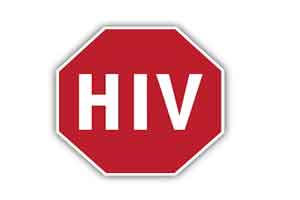- Home
- Medical news & Guidelines
- Anesthesiology
- Cardiology and CTVS
- Critical Care
- Dentistry
- Dermatology
- Diabetes and Endocrinology
- ENT
- Gastroenterology
- Medicine
- Nephrology
- Neurology
- Obstretics-Gynaecology
- Oncology
- Ophthalmology
- Orthopaedics
- Pediatrics-Neonatology
- Psychiatry
- Pulmonology
- Radiology
- Surgery
- Urology
- Laboratory Medicine
- Diet
- Nursing
- Paramedical
- Physiotherapy
- Health news
- Fact Check
- Bone Health Fact Check
- Brain Health Fact Check
- Cancer Related Fact Check
- Child Care Fact Check
- Dental and oral health fact check
- Diabetes and metabolic health fact check
- Diet and Nutrition Fact Check
- Eye and ENT Care Fact Check
- Fitness fact check
- Gut health fact check
- Heart health fact check
- Kidney health fact check
- Medical education fact check
- Men's health fact check
- Respiratory fact check
- Skin and hair care fact check
- Vaccine and Immunization fact check
- Women's health fact check
- AYUSH
- State News
- Andaman and Nicobar Islands
- Andhra Pradesh
- Arunachal Pradesh
- Assam
- Bihar
- Chandigarh
- Chattisgarh
- Dadra and Nagar Haveli
- Daman and Diu
- Delhi
- Goa
- Gujarat
- Haryana
- Himachal Pradesh
- Jammu & Kashmir
- Jharkhand
- Karnataka
- Kerala
- Ladakh
- Lakshadweep
- Madhya Pradesh
- Maharashtra
- Manipur
- Meghalaya
- Mizoram
- Nagaland
- Odisha
- Puducherry
- Punjab
- Rajasthan
- Sikkim
- Tamil Nadu
- Telangana
- Tripura
- Uttar Pradesh
- Uttrakhand
- West Bengal
- Medical Education
- Industry
18 million taking ART to fight HIV: WHO

Kolkata: More than 18 million people with HIV are currently taking antiretroviral therapy (ART) with a similar number still unable to access the life-saving treatment, the WHO has said, as it issued new guidelines on self-testing to improve access to HIV diagnosis.
The World Health Organisation (WHO) report issued on the eve of World AIDS Day tomorrow said lack of HIV diagnosis is a major obstacle in implementing the WHO's recommendation that everyone with HIV should be offered ART.
Today 40 per cent of all people with HIV, numbering over 14 million remain unaware of their status. Many of these are people at higher risk of HIV infection who often find it difficult to access existing testing services, it said.
"Millions of people with HIV are still missing out on life -saving treatment, which can also prevent HIV transmission to others," WHO Director-General Margaret Chan said.
"HIV self-testing should open the door for many more people to know their HIV status and find out how to get treatment and access prevention services," she said.
WHO has released new guidelines stressing on HIV self- testing to improve access to and uptake of HIV diagnosis.
HIV self-testing means people can use oral fluid or blood- finger-pricks to discover their status in a private and convenient setting, the WHO release said.
Results are ready within 20 minutes or less. Those with positive results are advised to seek confirmatory tests at health clinics.
WHO recommended that they receive information and links to counselling as well as rapid referral to prevention, treatment and care services.
HIV self-testing is a way to reach more people with undiagnosed HIV and represents a step forward to empower individuals, diagnose people earlier before they become sick, bring services closer to where people live, and create demand for HIV testing. This is particularly important for those facing barriers to accessing existing services, the report said.
Between 2005 and 2015 the proportion of people with HIV learning of their status increased from 12 per cent to 60 per cent globally, the release added.


